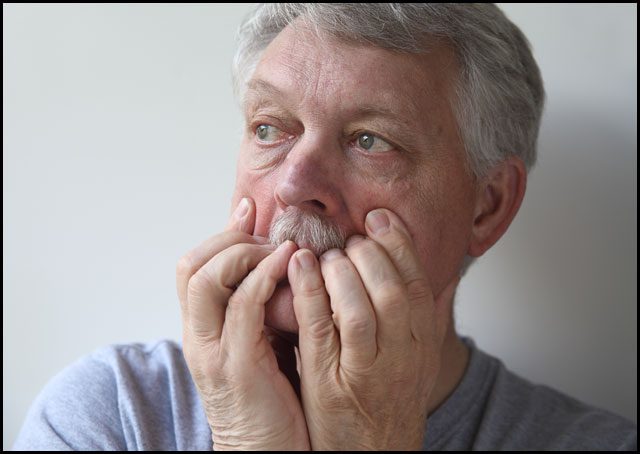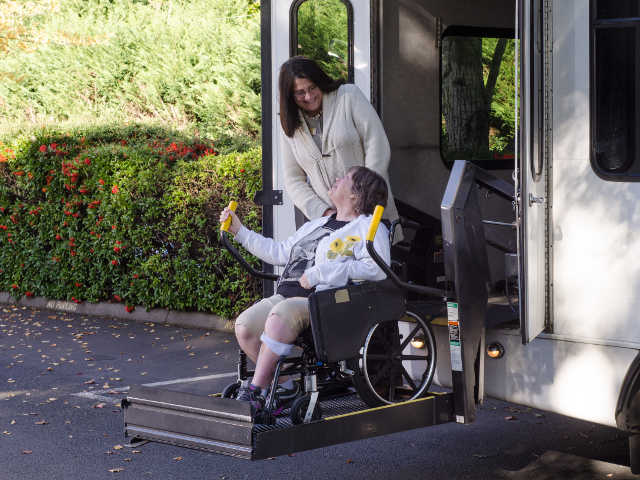
Can Walking More Slowly Indicate Alzheimer’s Disease?
 Home health care professionals are always on the lookout for signs of Alzheimer’s disease. One of the problems with managing Alzheimer’s is the lack of reliable information about diagnosing the disease. Another challenge for caregivers is keeping up to date with information about available treatments. One thing is known: the earlier it is detected, the more likely that Alzheimer’s treatments will be effective in the long run.
Home health care professionals are always on the lookout for signs of Alzheimer’s disease. One of the problems with managing Alzheimer’s is the lack of reliable information about diagnosing the disease. Another challenge for caregivers is keeping up to date with information about available treatments. One thing is known: the earlier it is detected, the more likely that Alzheimer’s treatments will be effective in the long run.
As we grow older, our bodies undergo profound changes that make life more challenging, but these changes don’t necessarily indicate the presence of an underlying disease that can be treated. These natural changes in physical and mental ability can mask the onset of Alzheimer’s.
A New Approach to Early Detection
Now there’s hope for early detection by simply observing changes in the walking speed of seniors. A neurologist working at Albert Einstein College of Medicine has recently defined a new telltale sign of oncoming Alzheimer’s: Motoric Cognitive Risk Syndrome. That’s a complicated term for a simple symptom: slow walking.
If you notice that someone is walking more slowly and unsteadily than in the past, it could be an indicator of the onset of Alzheimer’s disease. The neurologist uses a stopwatch to measure the speed of a walking patient, and then uses a series of simple questions to determine if there is also a loss in cognitive ability. While the test is hardly 100-percent accurate, it’s simple and inexpensive to administer. That means it could help many patients get earlier intervention and slow the advance of their dementia.
Why Walking Matters
One of the reasons that slow, unsteady gait might make a good indicator of cognitive impairment is that walking is a very complicated mental and physical process. Walking is second nature to an adult, but it requires a great deal of mental acuity along with the physical part of moving one’s feet.
As you walk, your mind is processing any number of streams of information, like the texture or unevenness of the walking surface, the presence of obstacles, the route you are taking, and other complex information. Just keeping your balance while standing is complex process, and the complexity increases as you begin moving.
That’s why home health care assistants should look for changes in walking speed that might indicate a decrease in the ability of a client to process the information needed to move around effectively and safely.
Early Detection Is Important for Dementia Care
Alzheimer’s disease is a chronic, degenerative disease that gets worse over time. That’s why early detection of the problem can lead to better outcomes for patients. The sooner that appropriate dementia care is put in place, the better the quality of life for the patient — and their families.
Being overly vigilant for signs of Alzheimer’s can backfire, however. Single indicators for Alzheimer’s aren’t usually accurate. Alzheimer’s isn’t like other diseases that show up in a simple blood test or an X-ray. The progression of the disease is different for different people, and the symptoms vary.
Single Symptoms Aren’t Enough
It can be tempting to blame things like simple forgetfulness on early-onset Alzheimer’s, but it’s important not to jump to conclusions based on one indicator. Experts are constantly working to make it easier for home health care workers and family members to recognize the first symptoms of Alzheimer’s, but they caution that the disease normally shows a whole range of problems, not a single failing.
Look for Other Explanations First
There are many other reasons why walking might be difficult for seniors, so it’s smart to look for other problems before jumping to any conclusions. If a senior has arthritis, or has recently suffered an injury that would explain a sudden drop in mobility, the senior care agency or other caregiver should make sure their physical disabilities are treated first. It’s only when mobility suffers a noticeable decline along with problems with mental acuity that Motoric Cognitive Risk Syndrome is indicated.
Exercise Is Important for Seniors
No matter the reason, it’s not healthy for senior citizens to go without regular physical activity. While strenuous exercise might not be possible, almost every senior could benefit from walking, especially out of doors. Regular exercise like walking increases physical strength and stamina, and it also guards against the social isolation that can come with staying indoors all the time.
The most effective forms of home health care for seniors include mental and physical stimulation from activities like walking, playing games, gardening, and socializing. Observing seniors while they participate in activities can also point to problems like slow walking and memory loss that might lead to more timely dementia care for Alzheimer’s.





